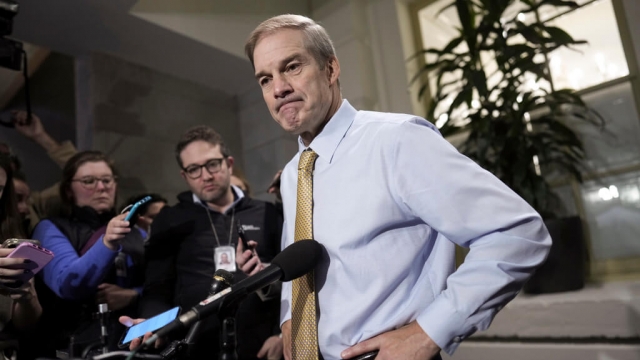This year, Congress has faced an unprecedented crisis of leadership in its vital quest to fill its speaker role, the highest authority for the majority party of the House, and second in line of succession behind the Vice President.
The role of the Speaker is both symbolic and essential for the House to function.
They are the most prominent spokesperson for the majority party (even though they technically do not have to be from the ruling party). And they also oversee committee assignments and structure floor debates.
The exact duties of the Speaker are left surprisingly vague in the constitution, but the office's powers have been refined throughout history.
In the late 1800s, the speaker's authority had grown so much that they were sometimes facetiously referred to as "czars," after the authority of Russian monarchs.
This would come to a head in 1910 under Speaker Joe Cannon, who, among other parliamentary tools, controlled the Rules Committee. He could essentially decide which laws would be heard and voted on.
After a rebellion in Congress to remove much of his powers, the speakers' position was greatly diminished for the rest of the 20th century.
Power shifted to committee chairmen, who were assigned by seniority, not by the speakers.
Nearly a century later, in 2001, Congress would make further changes to the limits of power.
In the wake of the September 11th attacks, Congress set up new contingency plans and guidelines for the temporary speaker position should a catastrophe strike.
SEE MORE: Jim Jordan ousted as Republicans' speaker-designee
With those new rules, the temporary speaker can only oversee floor debate and vote for the new speaker. This is why the House cannot act while the position is vacant.
The chaos in GOP leadership is taking place amid the declaration of war by Israel against Hamas.
"The House is without a speaker at a time of crisis, both at home and abroad. There is a sudden war in Israel that is demanding attention here in Washington," said Lisa Mascaro, an Associated Press reporter. "Without a speaker of the House, it cannot provide aid to Israel. It cannot even pass a simple resolution that House Republicans have put forward to say that the House stands with Israel."
In addition, tensions have been brewing over additional aid to Ukraine. The White House has pressed Congress for more funding, which they have yet to vote on.
"They don't have to wait 45 days to get this done. They really don't. There's no excuse for another crisis. That is what the president said yesterday. And they have to stop the games. They have to stop playing these games," said White House Press Secretary Karine Jean-Pierre.
Approving the funding to keep the government open was a top reason Florida Republican Matt Gaetz said he moved to upend Speaker Kevin McCarthy.
But the funding was temporary.
The annual budget still needs to be agreed upon. Funding will run out on November 17th. The incoming Speaker will have to negotiate within the House, Senate, and White House by that deadline to avoid a shutdown.
"The folks in my district sent me here to help rein in spending, to secure the border, to hold this administration accountable. This motion to vacate prevents us from doing that. It is playing right into Joe Biden's hands," said Rep. Nick Lalota, (R) New York.
As deadlines approach and new crises emerge, all eyes will be on the house, the GOP, and the speaker, who will be navigating uncharted waters.
Trending stories at Scrippsnews.com



